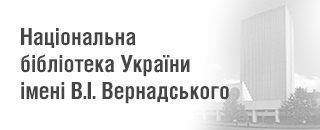Problems of implementation of measures in connection with the spread of the COVID-19 pandemic as a step towards system control in society
DOI:
https://doi.org/10.31470/2786-6246-2022-1-134-145Keywords:
communications, pandemic, crisis communications, manipulation, communication space managementAbstract
The article analyzes the systemic approaches to the problem of implementing measures in connection with the spread of the COVID-19 pandemic as a step towards systemic control in society. The author proved that the pandemic affects modern communications in society and has the following trends: first, the transition of communications to cyberspace (separation and isolation have abolished the usual way of communication); second, flexibility; third, new measures to measure the effectiveness of the communications model. A new, more threatening wave of COVID-19 virus or its successor in general may force individuals to consent to "anonymous" monitoring of their movements and contacts, so that on the one hand, if they are diagnosed with the disease, respond in advance and disseminate warning information to those in contact. patients, secondly - to receive a warning that there was contact with the infected and to take timely measures to combat the disease. This approach greatly simplifies public support for such strategic decisions. If we talk about developing countries, the issues of information support of the process of combating COVID-19 are of particular importance. As only a limited number of civil servants have access to real data on morbidity and consequences, there is a high probability that information will be distorted in favor of a solution that is more beneficial to the state or certain groups of stakeholders. It is worth returning to the analysis of the benefits and costs associated with the change in the zoning of individual regions of each sector of the economy. That is why data manipulation and relevant decisions on quarantine zones financially elevate certain types of business and force them to adapt, because it destroys others, widening the gap between them.
References
Яценко О.Ю. Пандемия как глобальный вызов: социально-экономический и правовой тезаурус. Образование и право. 2020. № 4. С. 504–507.
Гафиатулина Н.Х. Российское общество в условиях самоизоляции. Социальные эффекты и последствия пандемии COVID-19 : монография. М., 2020. 510 с.
Chinese firm working on facial recognition that can identify you under a mask. URL: https://www.digitaltrends.com/news/china-megvii-facial-recognition-masks-coronvirus-hong-kong/
Exclusive: Hundreds of Chinese businesses seek billions in loans to contend with coronavirus – sources. URL: https://mobile.reuters.com/article/amp/idUSKBN204182?__twitter_impression=true
Apple and Google partner on COVID-19 contact tracing technology. URL: https://www.apple.com/newsroom/2020/04/apple-and-google-partner-on-covid-19-contact-tracing-technology/
Коронавірус: що відомо про спалах смертельного захворювання. URL: https://www.bbc.com/ukrainian/features-51178798
Новий коронавірус: SARS, його «попередник», був небезпечніший. URL: https://www.ukrinform.ua/rubric-society/2861082-novij-koronavirus-sars-jogo-poperednik-buv-nebezpecnisij.html
Где в Киеве зафиксирован Cоvid-19. Вести публикуют улицы и номера домов. URL: https://vesti.ua/people/gde-v-kieve-zafiksirovan-covid-19-vesti-publikuyut-ulitsy-i-nomera-domov
Elon Musk says there's a chance his AI-brain-chip company will be putting implants in humans within a year. URL: https://www.businessinsider.com/elon-musk-neuralink-brain-chip-put-in-human-within-year-2020-5







